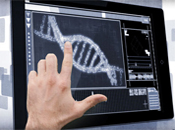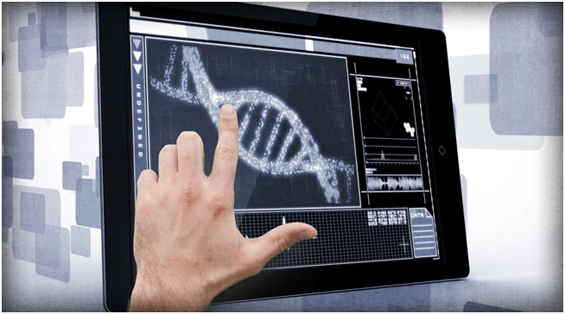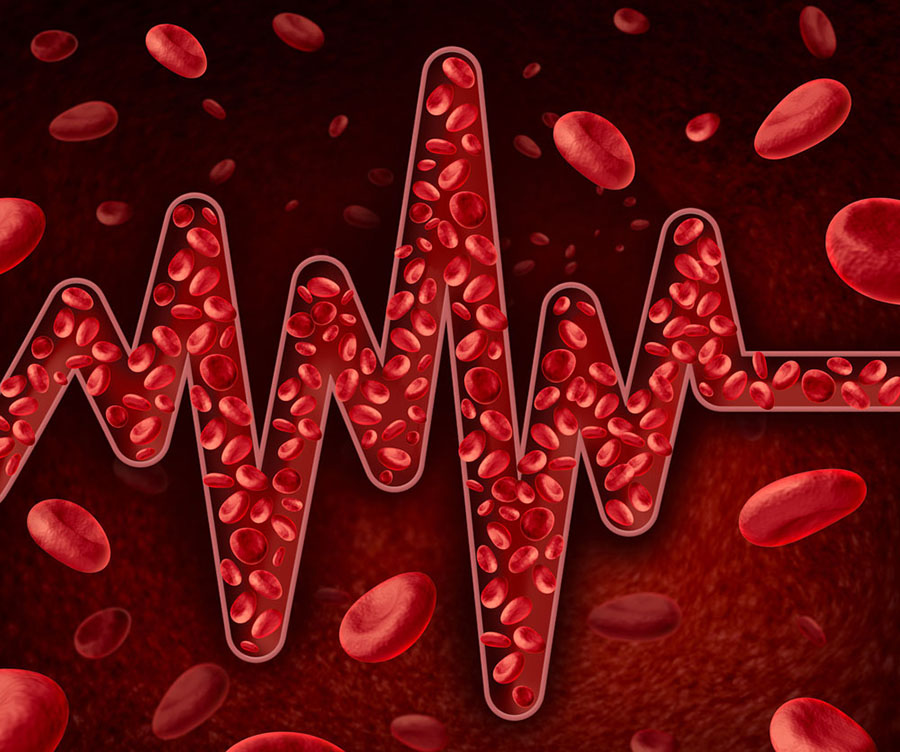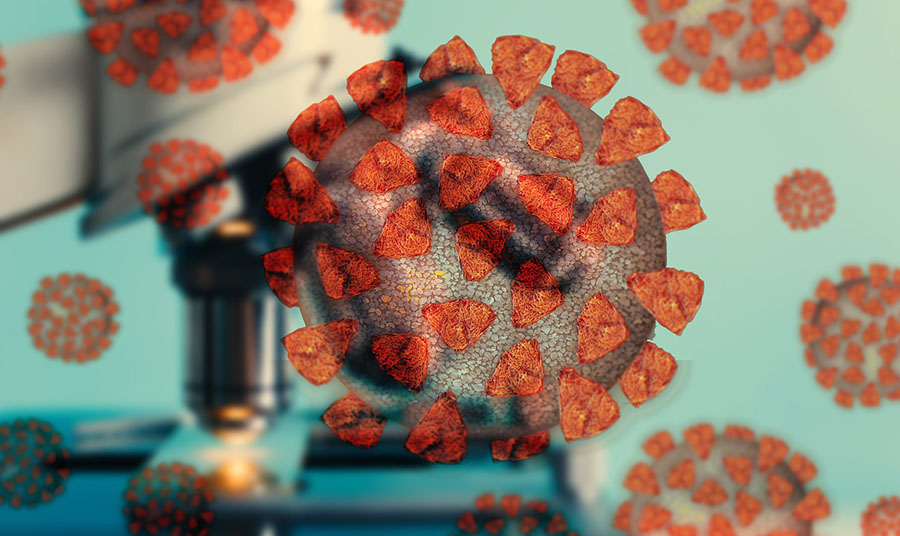

A prominent medical practitioner asked me what I thought to be a strange question this weekend: "Do you see any great medical advances in our future?"
I was stunned that he didn't know the answer.
Doctors do try to keep up with changes in their profession, especially changes that affect their specialties.
The only true Phase 3 stem cell study in the world is nearing completion in Pennsylvania.
But urologists probably know little about cutting-edge research into melanoma. And heart surgeons probably don't pay much attention to stem cell trials for Parkinson's disease.
My answer was strong and clear: If even a 50th of all the promising studies underway for new drugs and new therapies prove effective, we are about to enter a golden age of medicine.
Take cancer, for example, a disease for which we have made few true advances in 50 years. There are several companies that are likely to produce game-changing drugs within a few years.
There are so many melanoma drugs in trials (more than 300) that it's hard to identify them all.
The only true Phase 3 stem cell study in the world is nearing completion in Pennsylvania. If it proves to be as promising as it looks, we could be on the cusp of bringing blind people with macular degeneration back into the seeing world.
Go to ClinicalTrials.gov and type "active cancer studies" into the search engine. There are 11,239 underway. There are 854 in Los Angeles alone, 1,685 in New York and 552 in Atlanta.
I recently looked at Franklin Templeton's Biotechnology Discovery Fund to see how many companies a conservative investment adviser might find worthy of risk. There were 91 in the portfolio.
The money being spent on biotech is staggering. And the good likely to come from it will be beyond our dreams.
After I finished my rave, my friend said, "So what part of the market do you think will rise the most in the next 10 years?"
That took only one word to answer: biotech.
In the spring of 1995, actor Christopher Reeve approached the third jump at a cross-country riding event in Culpepper, Va., aboard his horse "Buck." The horse balked at the relatively low three-foot fence, and Reeve went flying over it, landing on his head.
The fall crushed his first and second vertebrae and destroyed the connection between his brain and the rest of his body. Despite an attempt to fix the spinal cord injury with heroic surgery, Reeve remained paralyzed from the neck down.
Within two years after the accident, Reeve had become an international promoter for research to cure spinal cord injuries.
He went on to help found the important Reeve-Irvine Research Center for spinal cord injuries, and established a foundation in his and his wife's name to help spinal cord injury patients.
But he knew the answer for people like him was in stem cell therapies, which offered the hope of helping a person regrow a connection.
Reeve was deeply frustrated by the severe limits imposed on embryonic stem cell lines for research established by President George W. Bush.
In 2003, Reeve made a trip to Israel to publicize that country's dedication to free and open stem cell research.
And shortly before he died, Reeve fought for Proposition 71 in California to establish the California Institute for Regenerative Medicine, a clear workaround to abortion-based ideologies preventing the federal government from getting behind stem cell research. Proposition 71 passed in November 2004, a month after Reeve died.
On May 29th, that institute gave a $14.3 million award to Asterias Biotherapeutics, a subsidiary of a long-held and successful company in my Breakthrough Technology Alert portfolio—BioTime (NYSE:BTX).
The award was to help develop a stem cell therapy called OPC1, which is about to enter Phase 2 studies. This therapy might have restored a great deal of function to Reeve, including the ability to move his arms and breathe on his own, had he lived long enough to become part of the trial.
For all of human history, there has never been a cure for spinal cord injuries. In the United States alone, 12,000 people suffer severe spinal cord injuries every year. Most become paralyzed until they die, usually 25 years earlier than they would otherwise.
The OPC1 stem cell therapy has been languishing for a number of years. It was developed by Geron Corp., a company started in 1990 by the CEO of BioTime, Dr. Michael D. West. In a twist of fate as strange as the Reeve-California Institute connection, West's new company has gained control of OPC1 from Geron, which had abandoned the research after West left Geron.
To some extent, $14 million may not seem like much in an era when it can take hundreds of millions of dollars to get a drug through Phase 1, 2 and 3 trials. But the award has huge symbolic value, and it's enough to keep the OPC1 ball rolling. "It's not insignificant," West told me. "It gets us from Phase 1 well into a Phase 2 study."
If the Phase 2 study is successful, he says, "that's when professional investors and Big Pharma companies will take notice."
West likes to develop new therapies centered on stem cells, and BioTime is a jumble of subsidiaries doing just that.
West is an innovator, not a drug manufacturer. He is perfectly happy to partner with pharma companies like Teva Pharmaceutical (NYSE:TEVA) in Israel. Once a therapy developed by BioTime shows promise, West prefers "to move on to develop another therapy."
Meanwhile, the state of California is essentially putting money in your pocket if you've invested in BioTime. It believes in the therapy enough to give a public commercial firm a free check to move ahead.
At the same time, West is pleased to raise capital that pushes OPC1 along "without any dilution of present stockholder value."
I think it's safe to say that few people noticed a quiet press release that came out of BioTime (NYSE:BTX) about this time last month.
It said that BioTime's subsidiary, LifeMap Sciences, "has created LifeMap Solutions Inc., a medical technology startup focused on creating innovative mobile health (mHealth) products and services powered by biomedical and other personal big data." Ho-hum.
The release was put out there to satisfy the endless requirements of the SEC as the company is created. Corey Bridges, the new CEO of LifeMap Solutions, probably wouldn't have submitted had it not been necessary.
"To be perfectly honest," he told me, "I'd rather not give my competitors any information about what we're up to." Bridges is a software and Internet developer who helped launch Netflix (NASDAQ:NFLX).
Big data and mobile health are phrases that conjure up the likes of Nike armbands and NSA computers full of your phone records. But this startup is headed in a direction that could change people's lives far more than computers or cellphones.
LifeMap Solutions intends to analyze more medical and health data about you than any doctor or any person could ever assemble. Then it will filter that information through "software, algorithms and databases," developed at New York's Mount Sinai Hospital complex to produce "predictive models," according to the 8-K filed on May 6.
The company says one goal of its products is to "provide users with information that may potentially aid them in improving lifestyle and health care decisions and outcomes." Hint: Forget the lifestyle part and focus on the words "health care decisions and outcomes."
For example, most cancers in most people in the United States are 11 years old when discovered. What if you had a clue 11 years earlier that a cancer was forming?
What if when you went into a grocery store, a smartphone app could tell you which foods you were about to purchase might make your specific body sick—or which might prevent illness?
How would that be possible? Because smart people are beginning to figure out that technology and medicine should long ago have been talking to each other about preventing disease instead of reacting to it.
So far, techy people and medical people have collaborated and come up with pacemakers and robotic surgery devices and arterial stents and the like. They're all wonderful, but they're for use long after you get seriously ill.
". . .within a few years, [gene sequencing] will be routine and everyone will have this done as a matter of course,"
LifeMap plans to take the trail of medical footprints you leave everywhere—doctor visits, annual exams, blood tests, MRI scans—and combine it with a gene assay of your body and then run all that through filters that include the big data Mount Sinai is accumulating on how genes control destiny.
"The cost of sequencing the genome is dropping more quickly than Moore's law, and within a few years, it will be routine and everyone will have this done as a matter of course," Bridges said.
But decoding your personal genome is not necessarily useful information, and it can be more confusing than helpful.
What do you do with the fact that a specific gene within a specific part of your DNA has a mutation? Nothing, unless you know the larger data about what that means among millions of people whose genetic makeup has been decoded and what their experience with that gene mutation and the diseases it may cause actually is.
That's why LifeMap is partnering with genetics genius Dr. Eric Schadt at Mount Sinai's Icahn School of Medicine. Schadt is director of the Icahn Institute for Genomics and Multiscale Biology and chair of the Department of Genetics and Genomics Sciences at Mount Sinai's medical school.
He and his team of researchers are helping create software that can combine everything known about your unique body with everything generally known about human diseases.
"Genetic analysis is far from a complete picture," Bridges says.
"Wearable devices are not a complete picture. However, when you get multiple sources and analyze them holistically with big data tools, you get an unprecedented picture of somebody's health."
The software should be ready in beta version by the end of the year, with introduction of an app sometime in 2015. It will be built in modular form so that new pieces of information can be plugged in as the medical community develops them.
There's no other application on your smartphone that I know of that could literally save your life, with the possible exception of an app called "findER."
Thus, LifeMap's software could become one of the most important apps ever conceived, which could make an investment in BioTime seem brilliant.
Stephen Petranek
The Daily Reckoning


























































